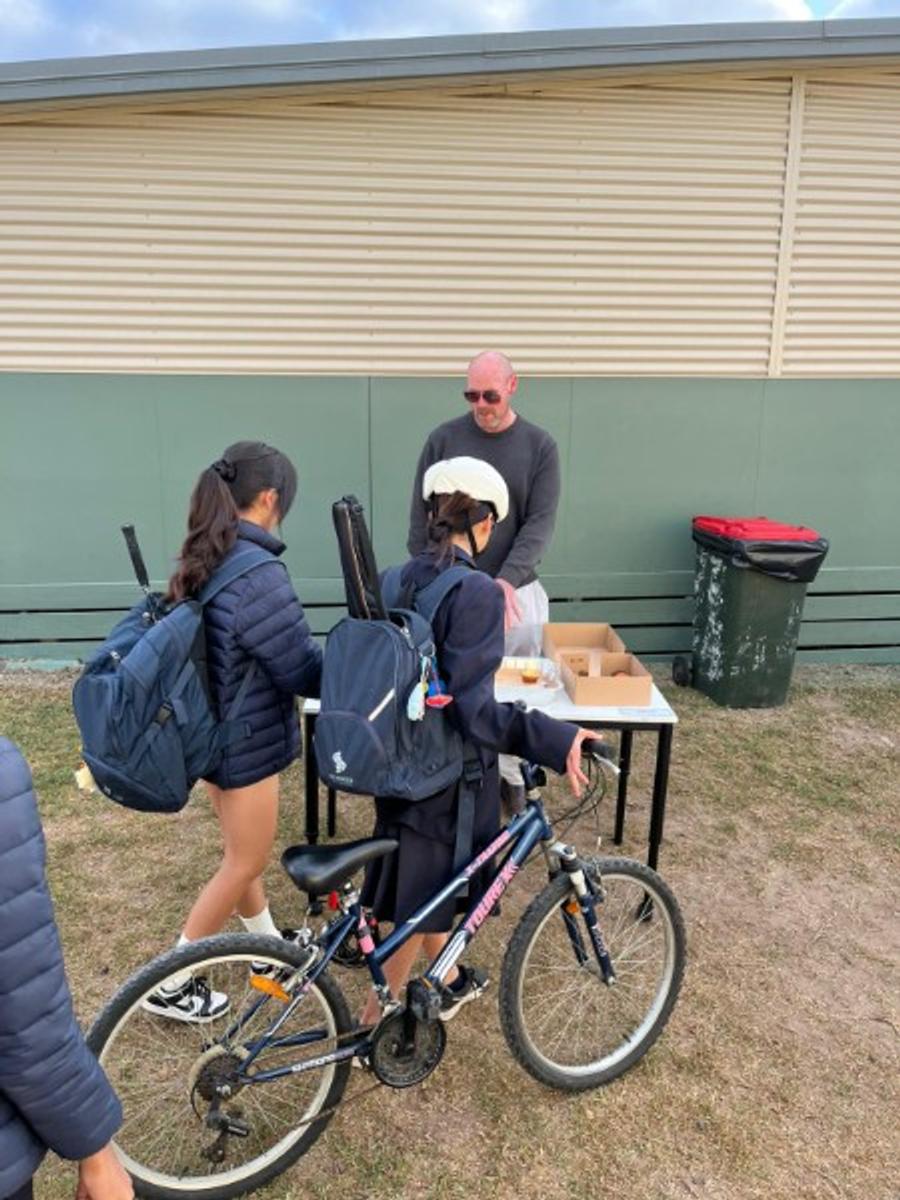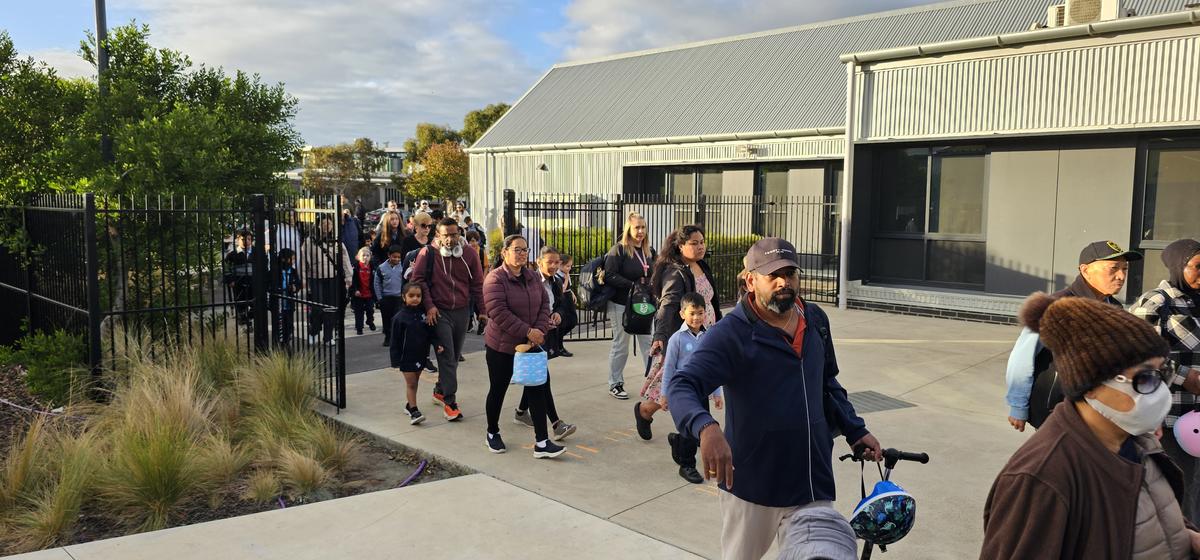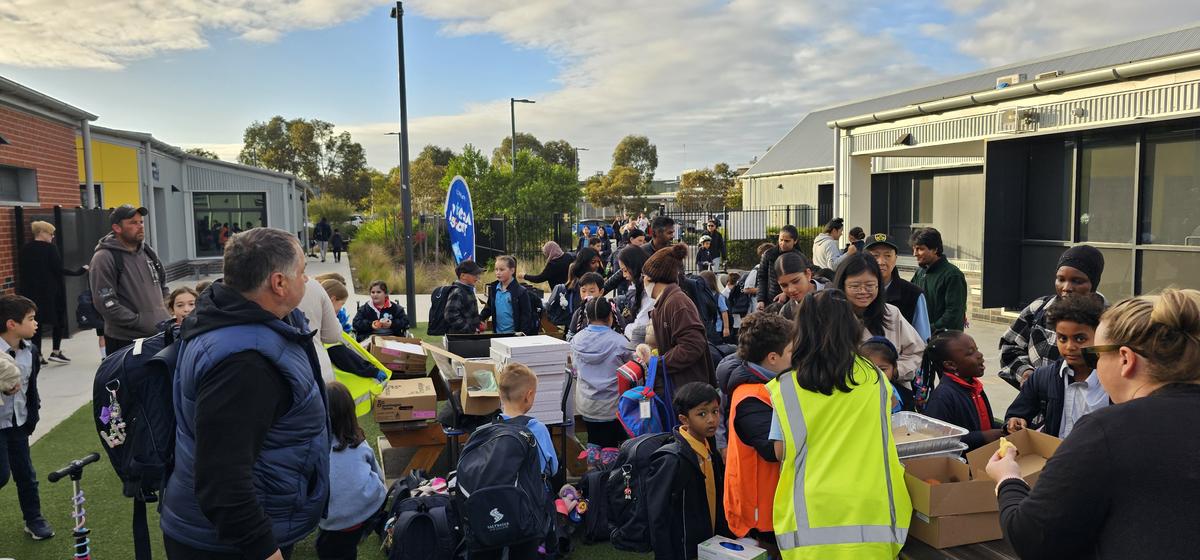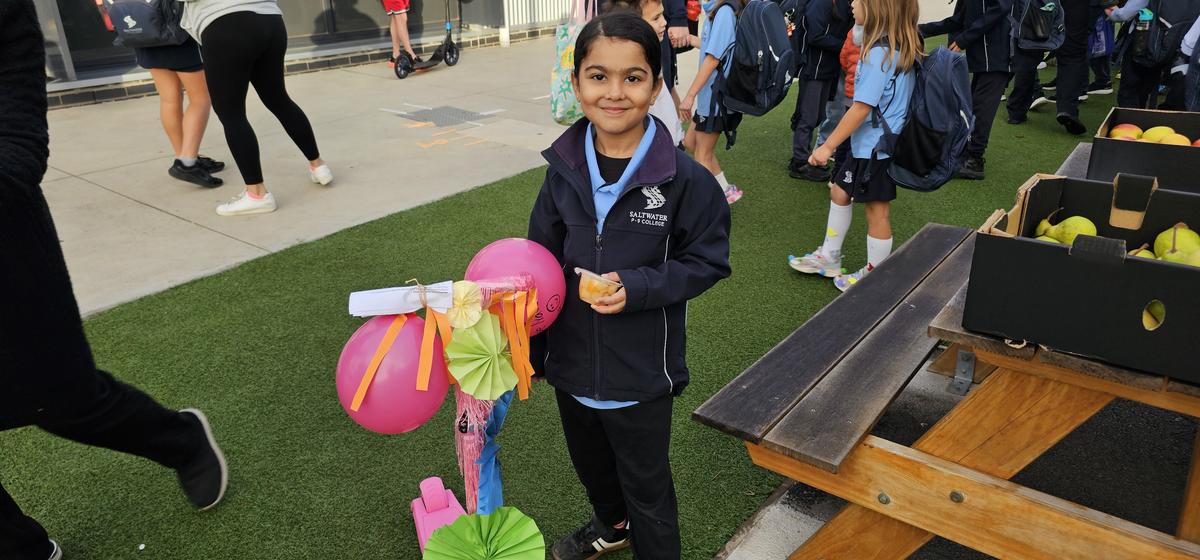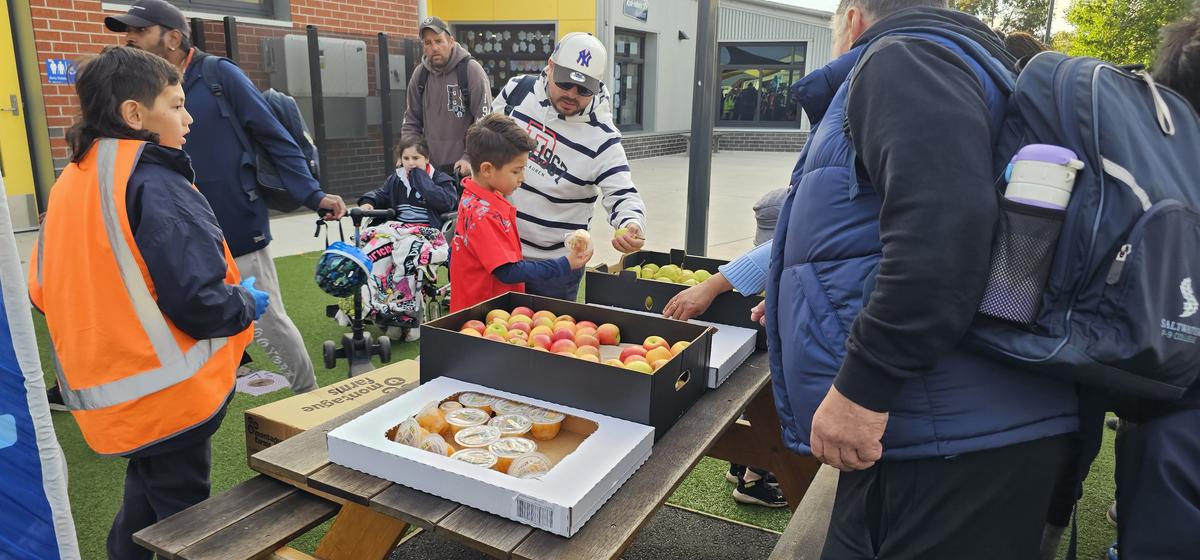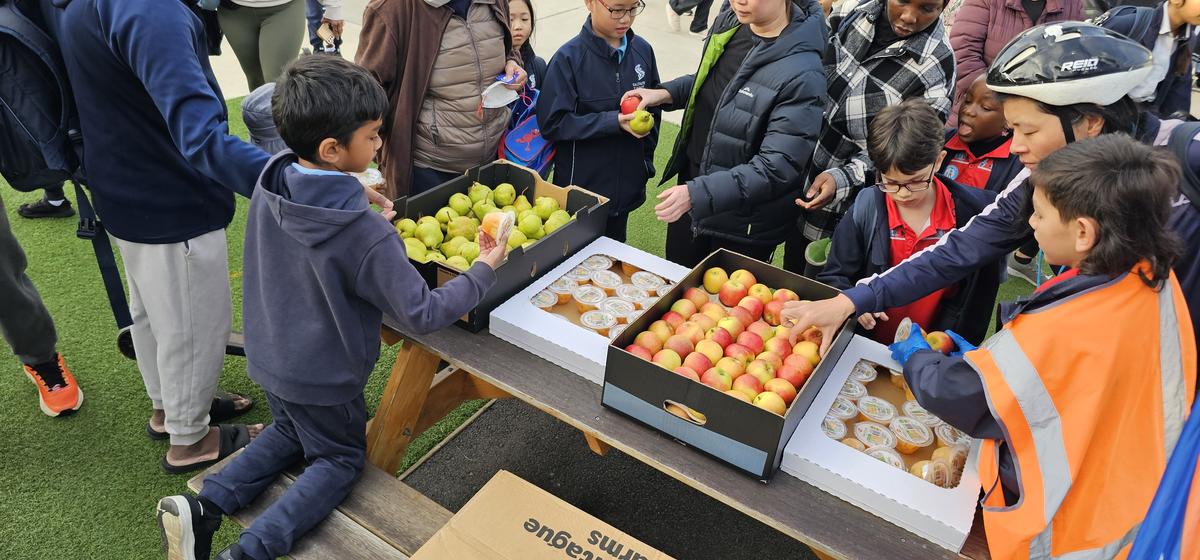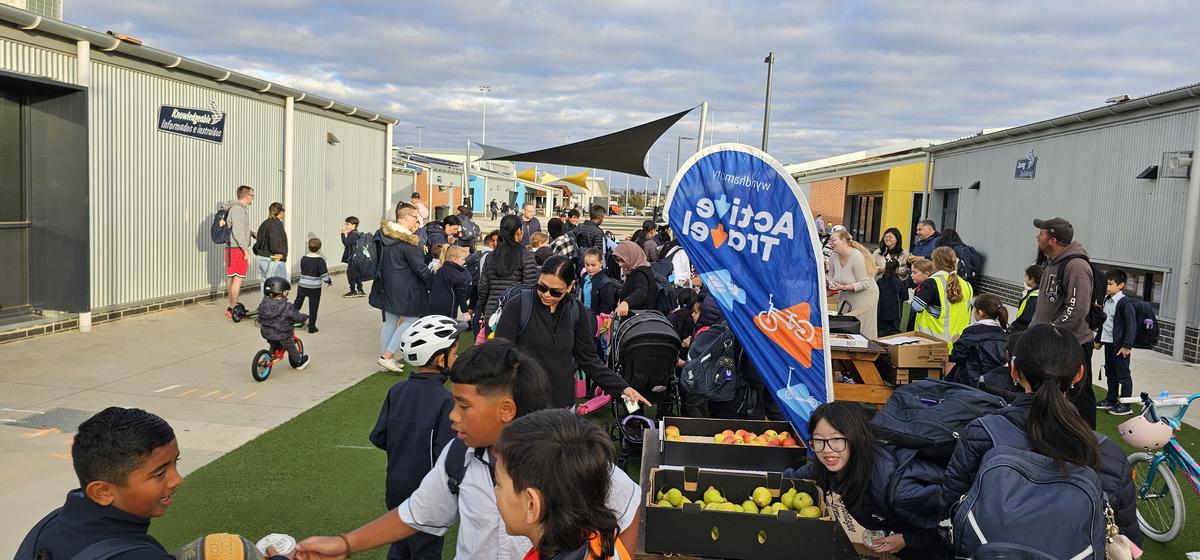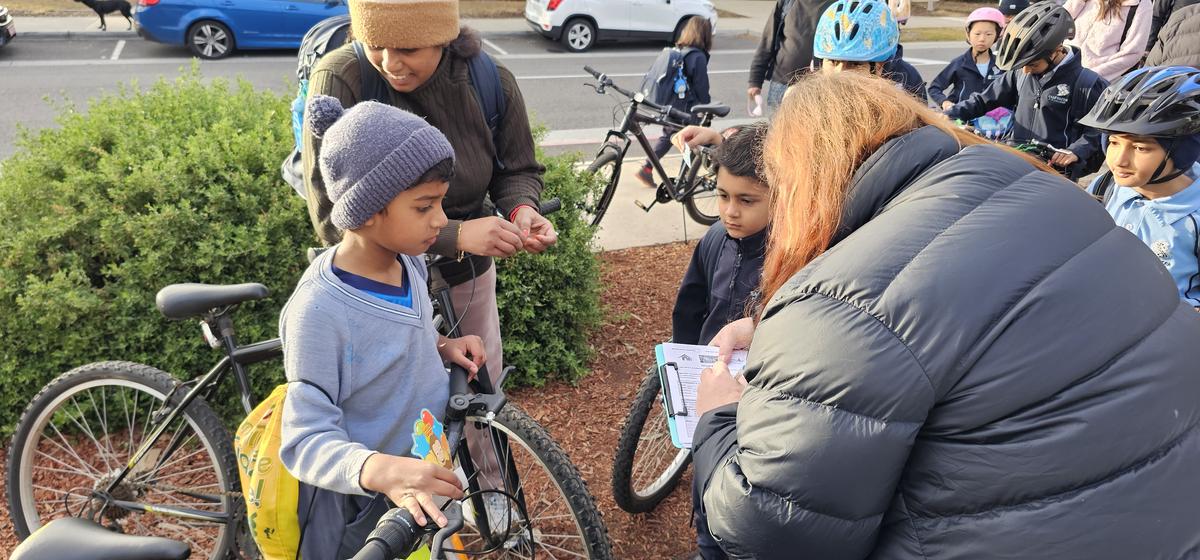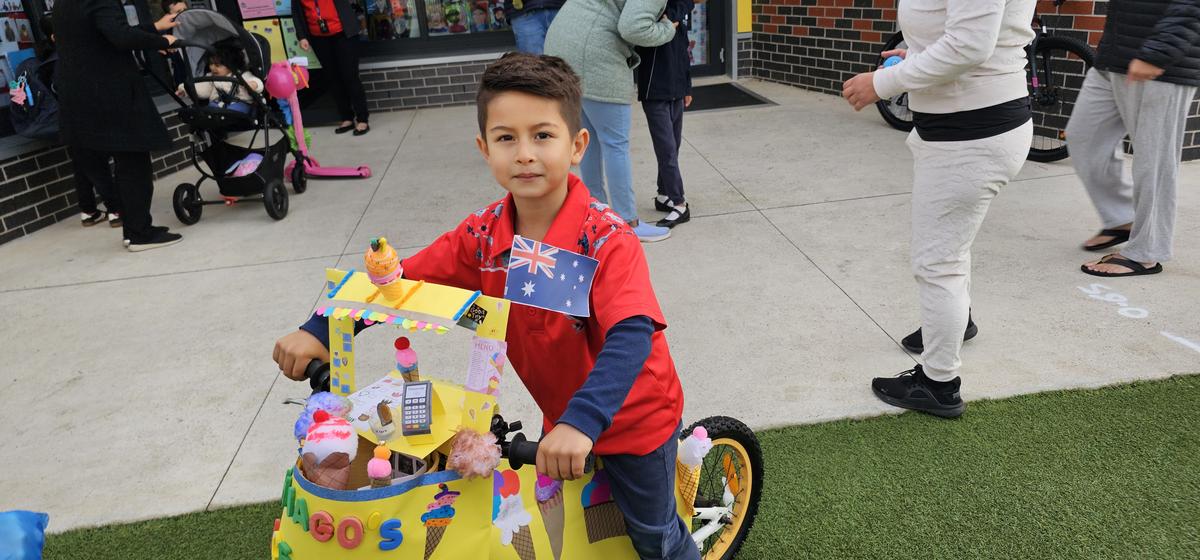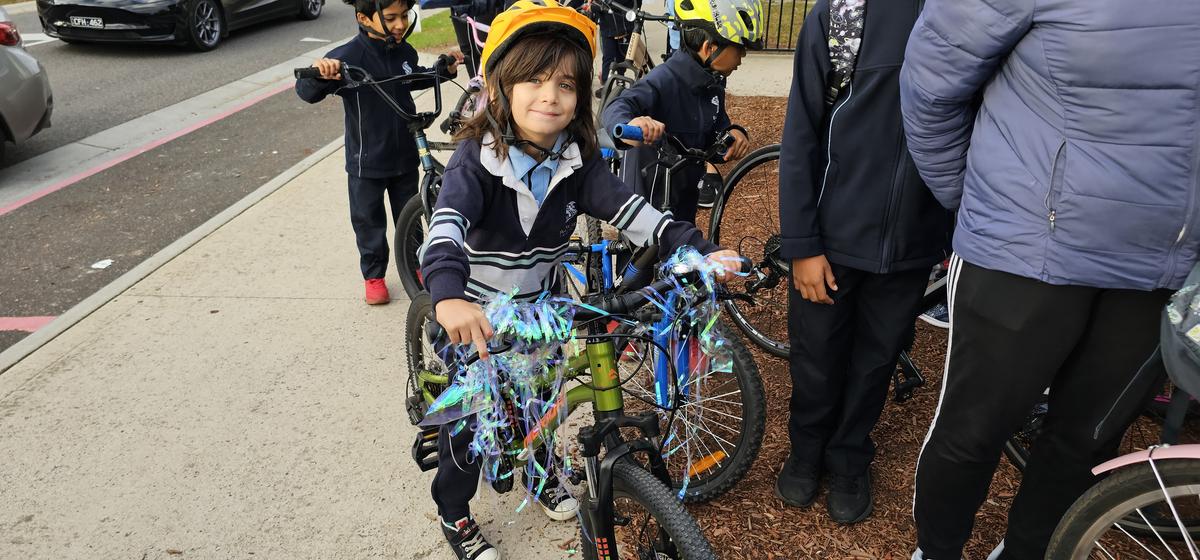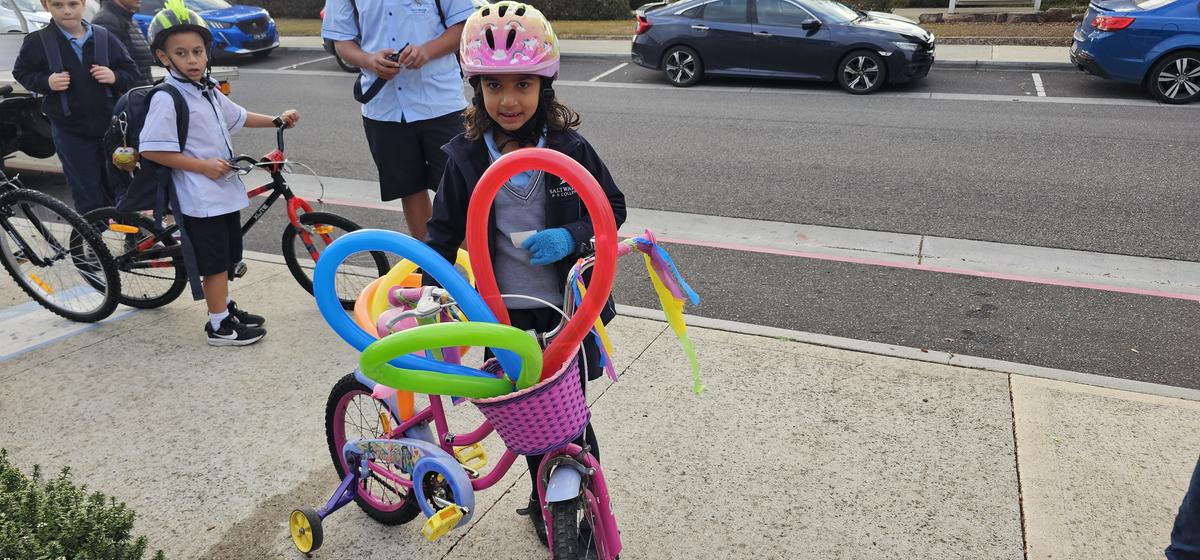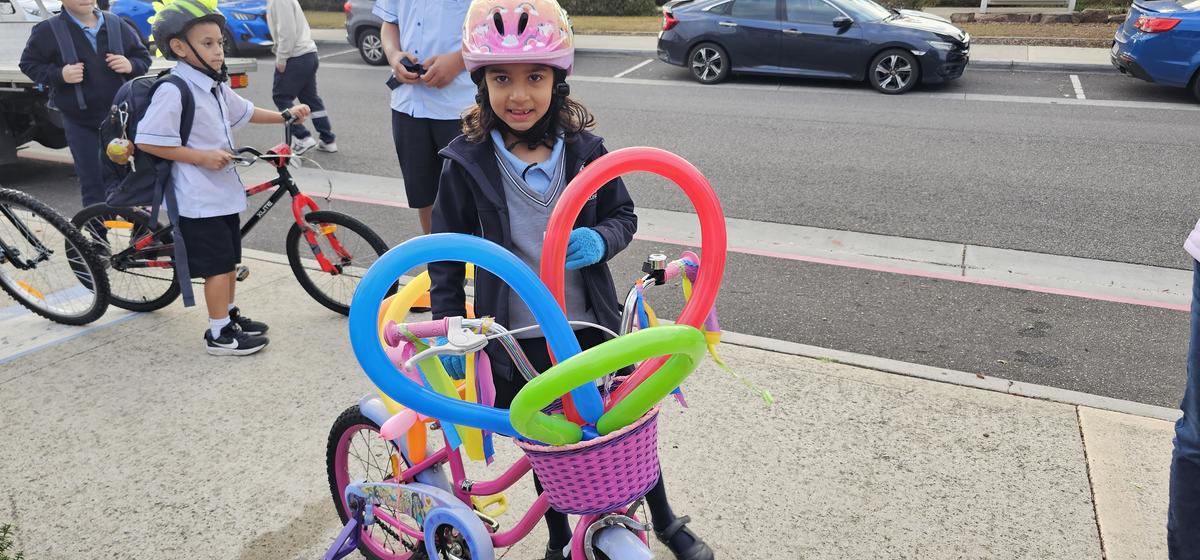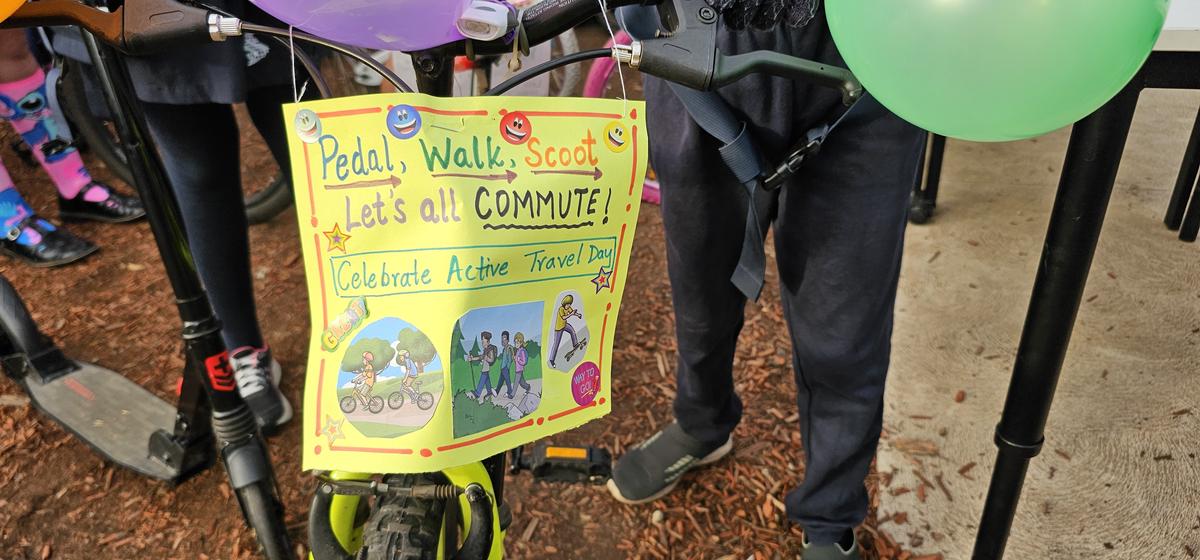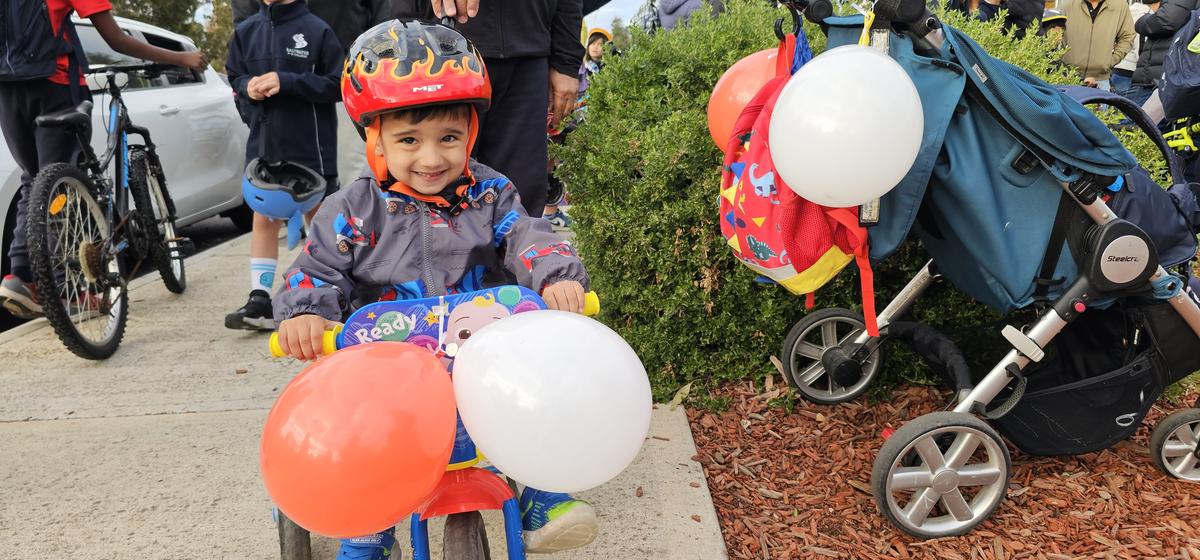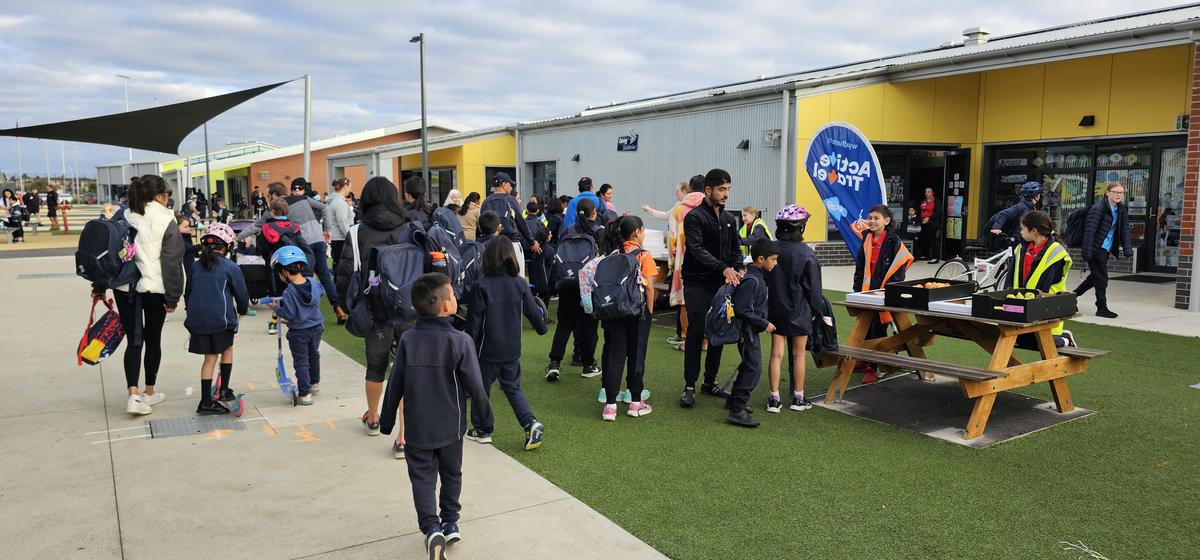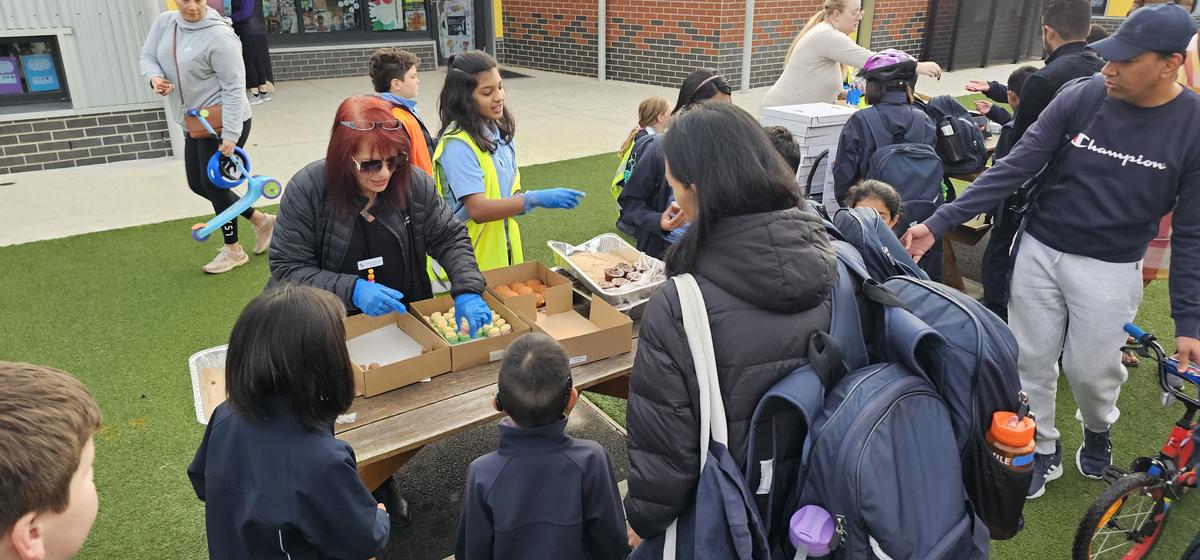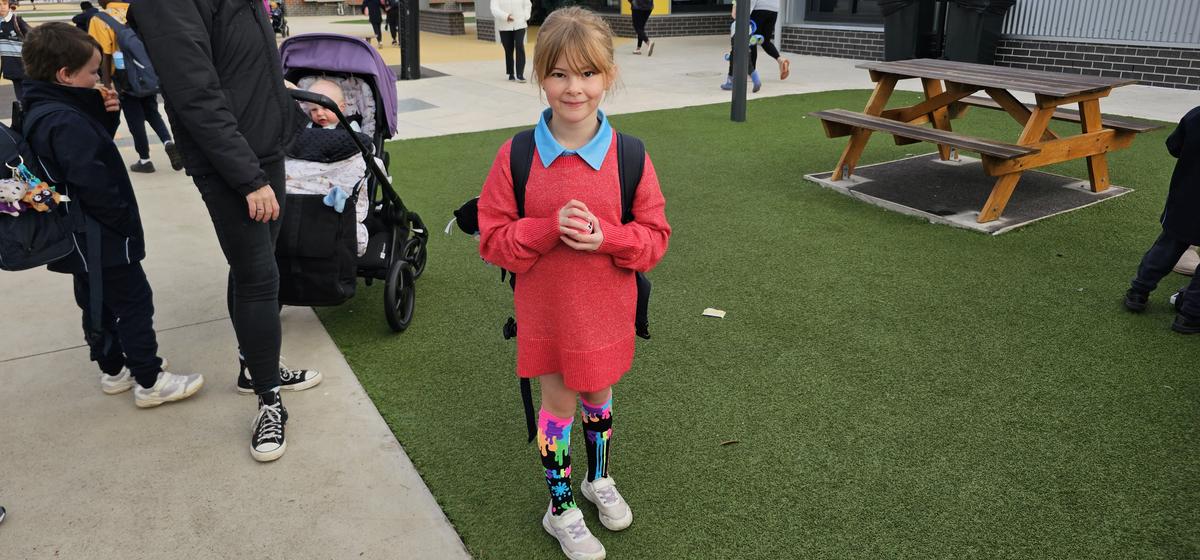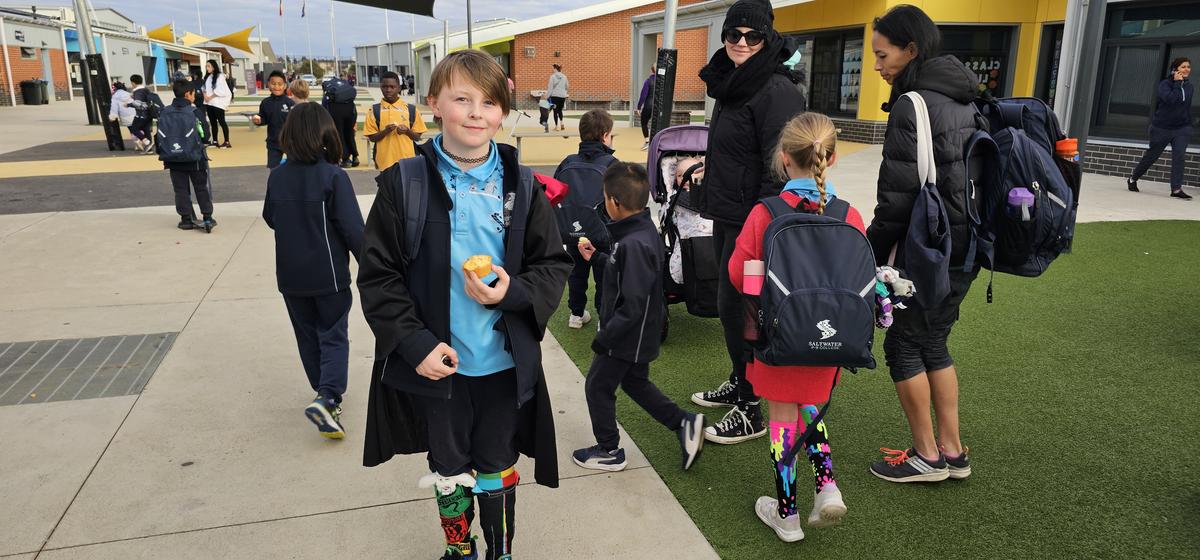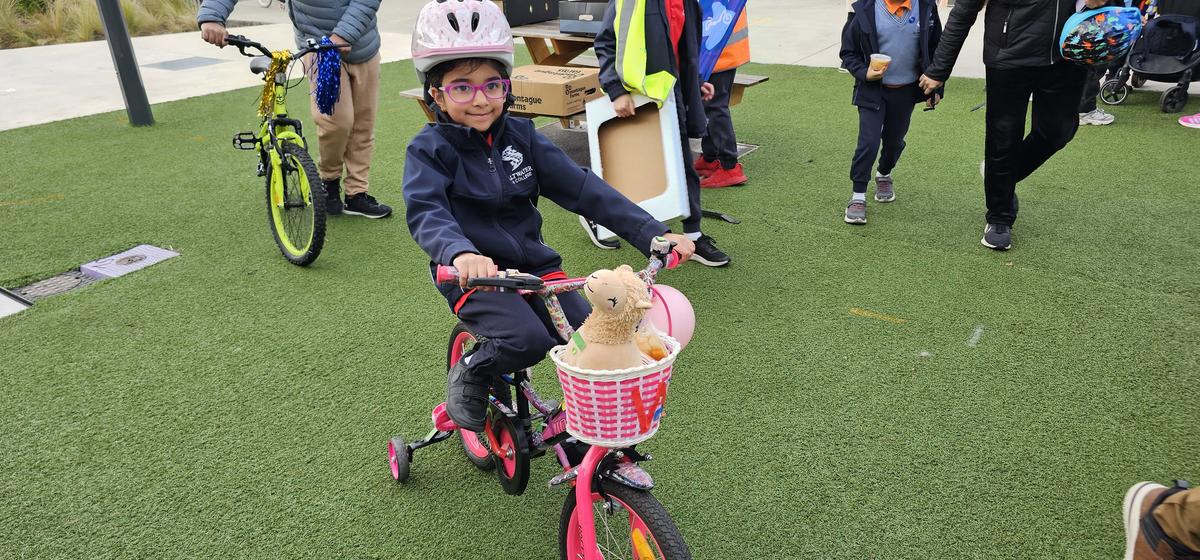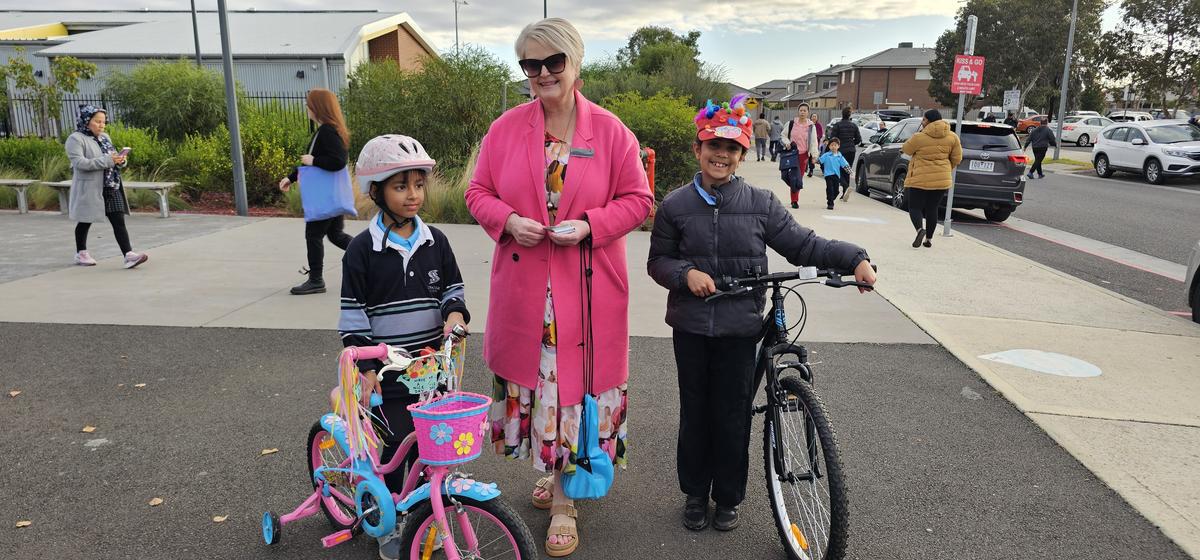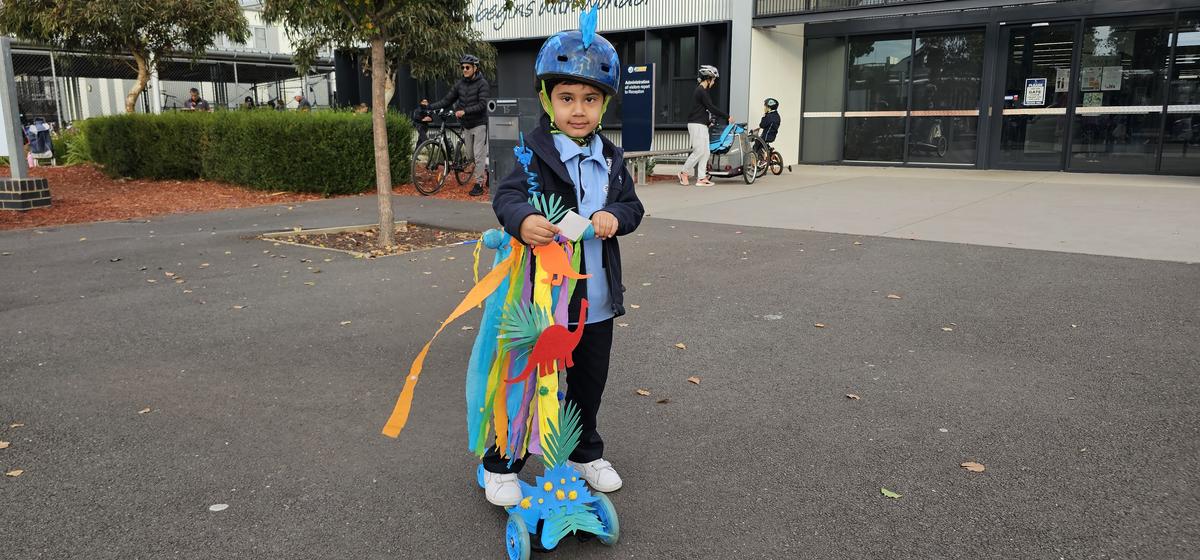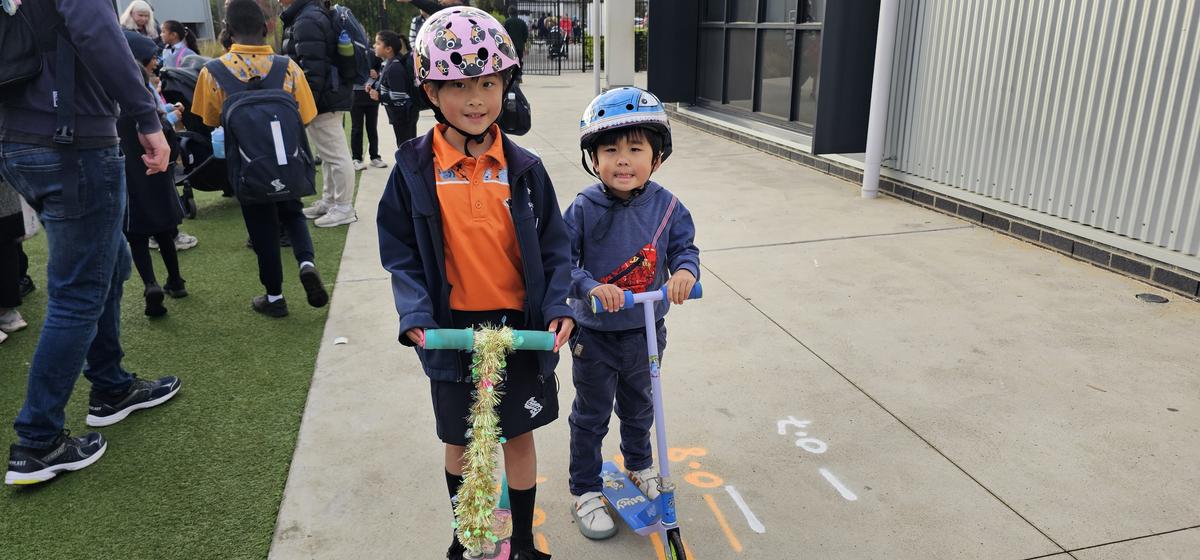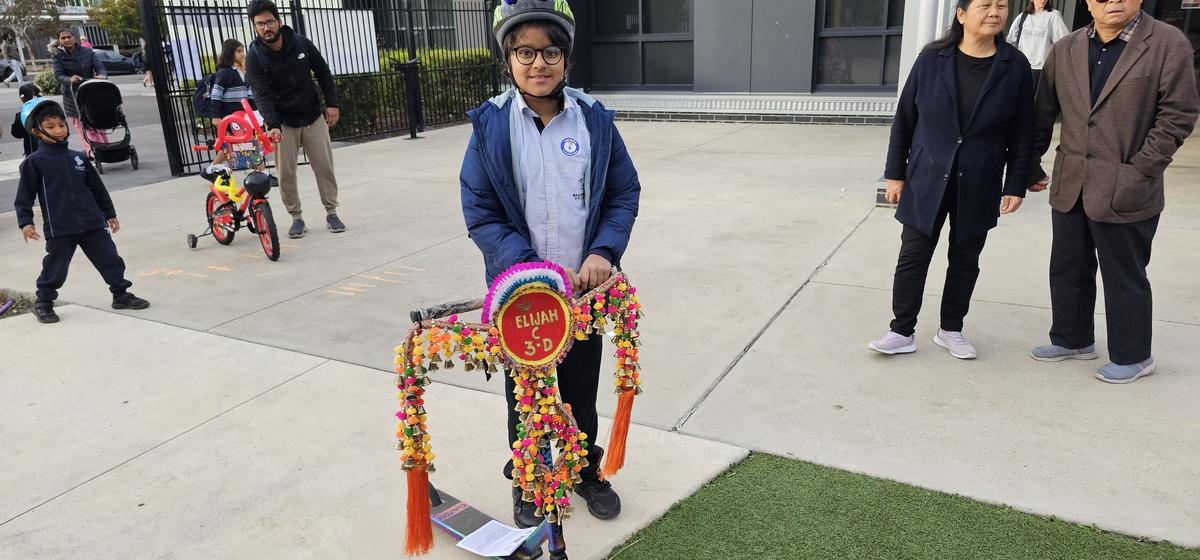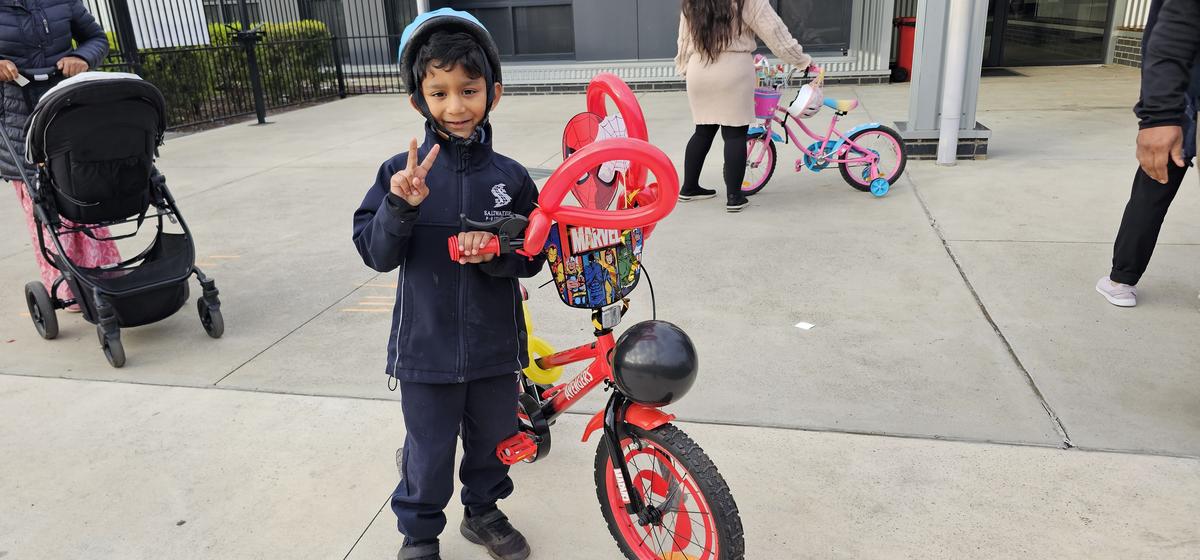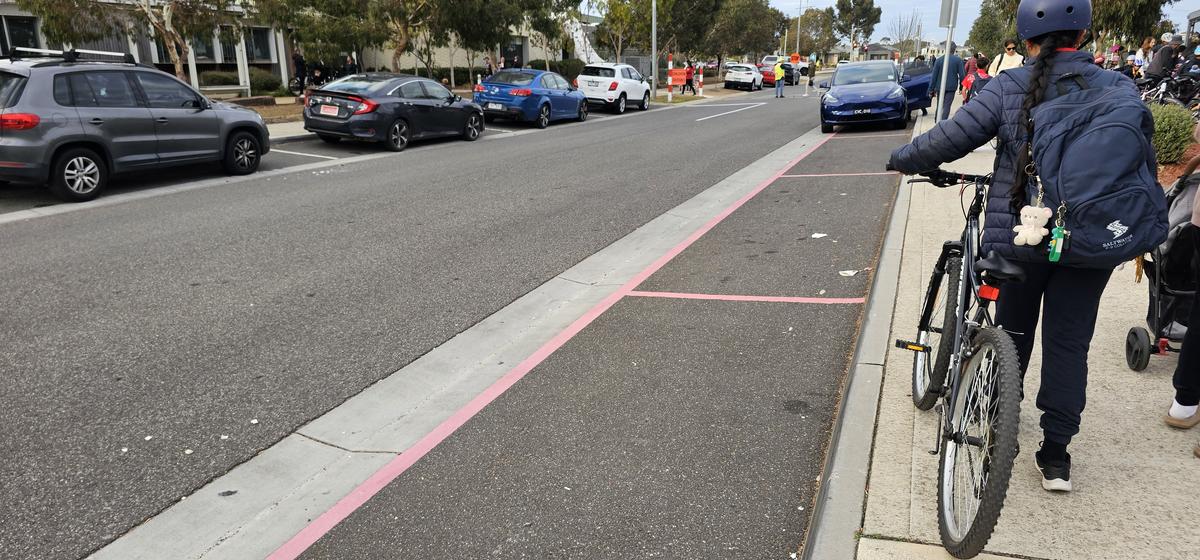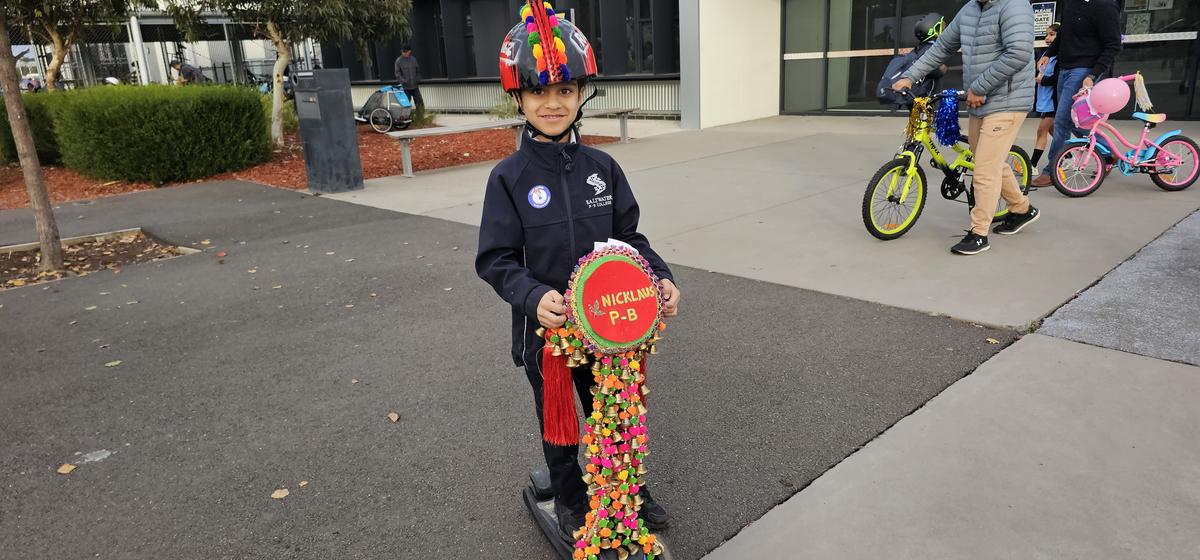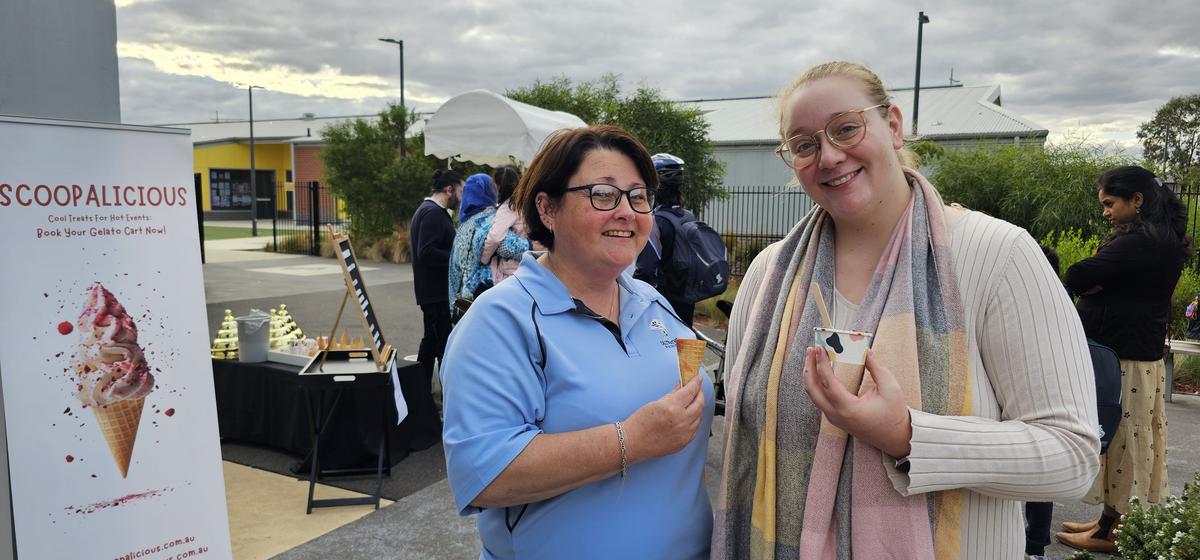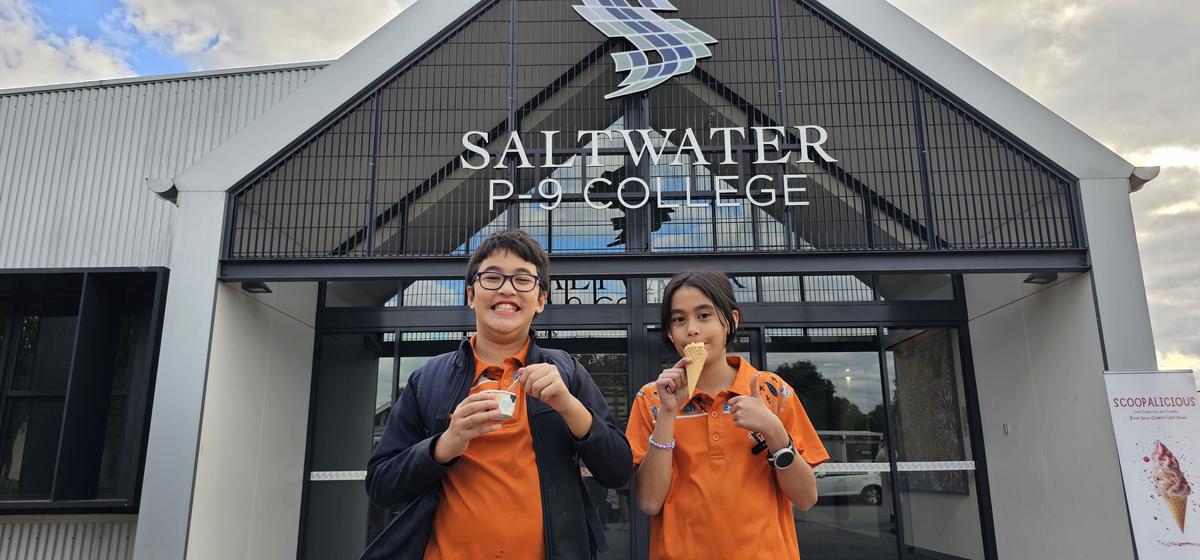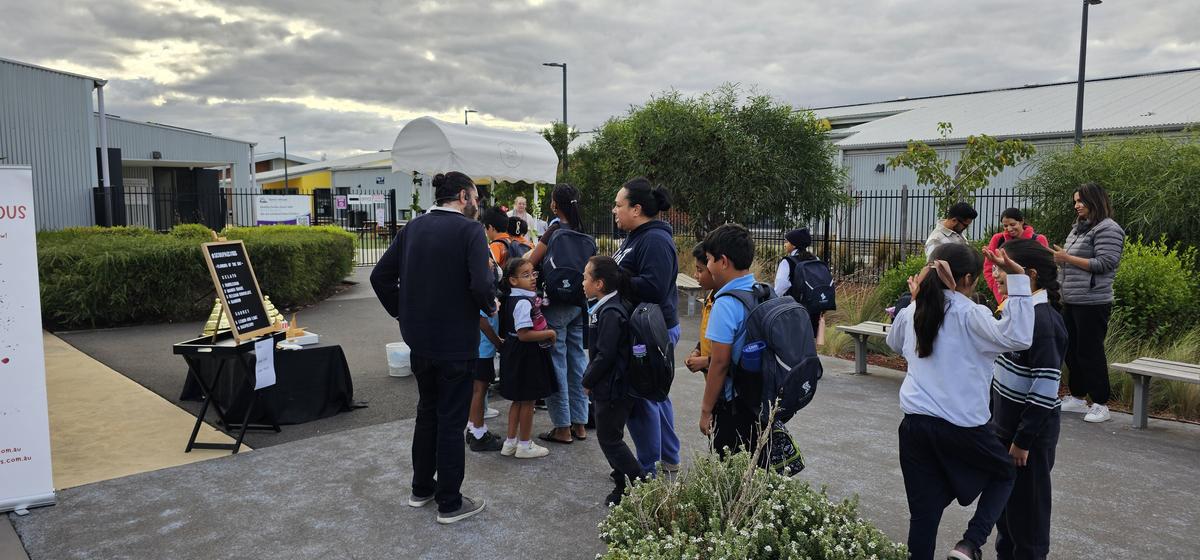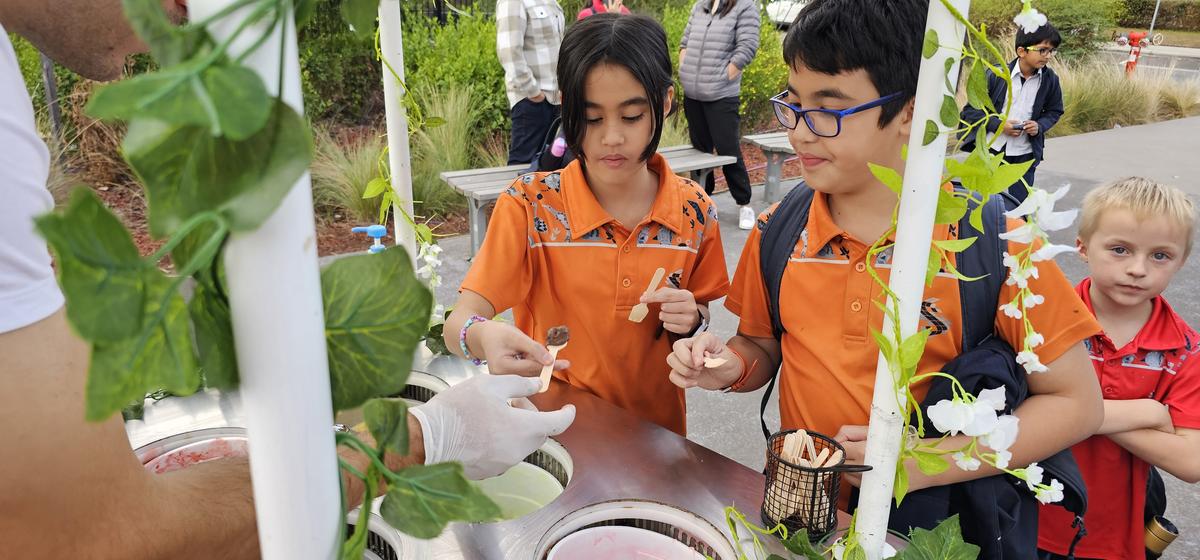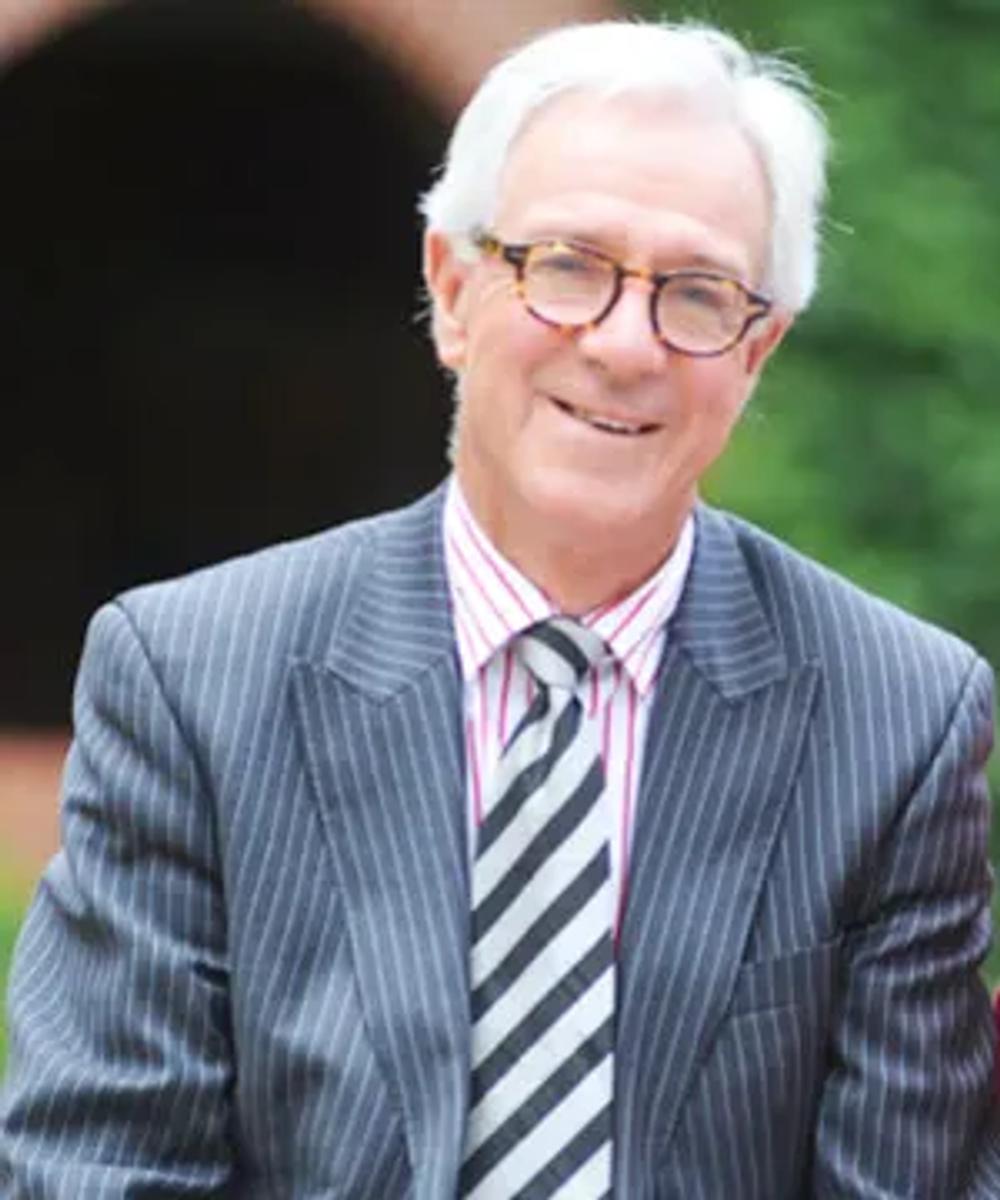Attendance & Engagement

Active Travel Day a Huge Success!
Friday, May 16
Our community came together in a fantastic display of enthusiasm, colour, and commitment for Active Travel Day—and what an incredible day it was!
Across both our Primary and Secondary campuses, we saw an outstanding number of students and families walking, riding, or scooting to school. The turnout was truly inspiring and made a noticeable impact, with significantly reduced traffic on surrounding roads during morning drop-off—a wonderful step toward a healthier, more sustainable school community.
The morning was full of excitement and smiles, with students receiving apples, fruit cups, muffins, baked goods, and stickers as they arrived. A massive thank you goes to The Daily Grind and Anaia Café for their generous donations, which were very much enjoyed by students and families alike.
A highlight of the day was the fantastic support from our upper-year student volunteers, who helped hand out food and prizes with enthusiasm and care. Their involvement was a testament to the strength of our school spirit and leadership.
The creativity on show was nothing short of brilliant! From decorated bikes and scooters to colourful socks and shoes, it was clear that students and families embraced the fun. Many students took home handballs and tyre valve caps as prizes for their efforts (while stocks lasted).
Over at the Kirra Place Bike Shed, a council member was on site conducting free safety checks on bikes. Students received zipper pulls for participating, and families were given information for follow-up support through Wyndham Park Community Shed.
To finish off the day, students enjoyed a well-deserved treat from the ice cream truck, celebrating not only their participation but the positive impact we can all have when we choose active travel.
Active Travel Day was a joyful reminder of what’s possible when we come together as a community to support wellbeing, sustainability, and shared responsibility.
A heartfelt thank you to our staff, student leaders, families, and partners who made this day such a success. Let’s keep the momentum going and continue to make active travel a part of our daily routine!
A huge thank you to Preety Kaur from The Daily Grind Café for supporting our Active Travel Day with a delicious donation of muffins! Your generosity added an extra layer of joy to the event and helped fuel our community’s energy and enthusiasm. We truly appreciate your support in promoting healthy, active lifestyles. 🧁🚴♂️☀️
If you haven’t already, be sure to stop by The Daily Grind Café and show them some love—they serve up great coffee, tasty treats, and warm community spirit!
Why a school’s success begins with culture
With over 50 years of experience in education, John Hendry OAM has become a trailblazer in the field of education, helping leaders reimagine what's possible.
In addition to being a teacher, Head of House, Acting Principal, and Director of Wellbeing, Hendry has also been a consultant to Primary and Secondary Schools across Australia, Hong Kong, China, and a consultant to UNESCO on bullying and school violence.
While this variety of roles certainly speaks to Hendry’s wealth of knowledge about what works (and what doesn’t) in education, it's his ability to help schools foster stronger relationships and understand the impact of culture change that truly sets him apart in his field.
From introducing groundbreaking concepts like the Relationship Quotient and Relationship-based Education (RbE) to co-creating the Resilient Mindset alongside Andrew Fuller, Hendry has left an indelible mark on the way young people and educators approach learning.
But it doesn't stop there. Hendry's Affect Performance Model – a powerful exploration of peak performance – has garnered international acclaim. He has taken the stage at countless conferences, captivating audiences with his insights on education, restorative justice, trauma, relationships, forgiveness, performance, flow, school culture, resilience, and meditation.
During his time at Geelong Grammar School, Hendry fulfilled a wide range of important roles, including Head of Careers, Head of House (Francis Brown) and Acting Principal. In 2004, he became Geelong Grammar School’s Director of Student Welfare and was instrumental in the school's development of Positive Education.
On 13 June, Education Horizons hosted a webinar in which Hendry shared insights into Geelong Grammar School’s Positive Psychology transition, the importance of true wellbeing culture change, and the relationship between learning and wellbeing.
Speaking to The Educator about his presentation, Hendry highlighted the critical role that culture plays in shaping a school.
“Culture rules. It determines all,” Hendry told The Educator. “It is about ‘setting the tone’, about establishing ‘the vibe’, and including or excluding, about providing the circumstance for growth or the circumstance to deny growth, it enables or disables, it provides a sense of safety, or it denies safety. In the end it is kind, forgiving, or not.”
Hendry said it is also critical that all staff – not just the executive – determine the intention of their school’s culture.
“All must contribute, and within a school, the adults, teachers and all other attending adults from administration through to cleaners, gardeners, maintenance people, must ‘live’ the determined culture moment-to-moment,” he said.
“Not only does that establish for them a resilient living and working circumstance, but it provides the safety to explore, experiment, make errors and reconstruct ways forward.”
‘Step outside the cave and see beyond the shadows’
Hendry said a school’s culture needs both “top down and bottom up contribution”.
“This includes inventive and morally sound leadership, a sense of welcome and engagement that fosters contribution and creativity and presents all with a sense of worth,” he said.
“It is necessary to establish what are the ‘unwritten ground rules’ of the existing culture, exposing and then placing them on the table for all to see, and quietly, deliberatively, evaluate each and remove those that obviously inhibited inclusion, and those things that disable or deny contribution.”
Hendry said this goes to “Plato’s Cave” allegory, where to see and understand the culture “one must step outside the cave and see beyond the shadows” that depict the existing culture.
“This challenges all who are comfortable; however, in the long run, it empowers all. The intention for change must be understood and appreciated, endorsed and fully embraced so all who live within feel that each can contribute to the new culture without fear, and feel worthy in doing so,” he said.
“Again, this requires patience and a doggedness that is appreciated and even admired. All this is directly relational, so the pathway to cultural change is found in the relational matrix which must be reviewed and established to be kind and forgiving and establish what may be described as a virtuous institution.”
Such quality relationships are underpinned by trust, forgiveness, integrity, hope and compassion, Hendry said.
“These generate a confidence that invites contribution. Relational harm is eschewed,” he said. “Simple things are important to do well, and little things matter and must be attended to with care. Nothing falls into the ‘it’s not important’ basket.”
Hendry said mistakes, misjudgements, difference and conflict must be managed through a "relationship reparation process" where "all are genuinely engaged in establishing a constructive way forward to reestablish a quality relationship which then enables all to contribute again."
“All this sounds complicated and challenging and it is both, however, once initiated and embraced it can move quickly to gather an energy that is remarkable and obviously presents an establishing change,” he said.
“Fear of change is replaced by an excitement and a sense of engagement that sponsors a dynamic process for all to embrace. In schools this involves all who attend - adults, students and parents - for all stakeholders within the culture must contribute.”
Thank you,
Brent Syme
Assistant Principal

